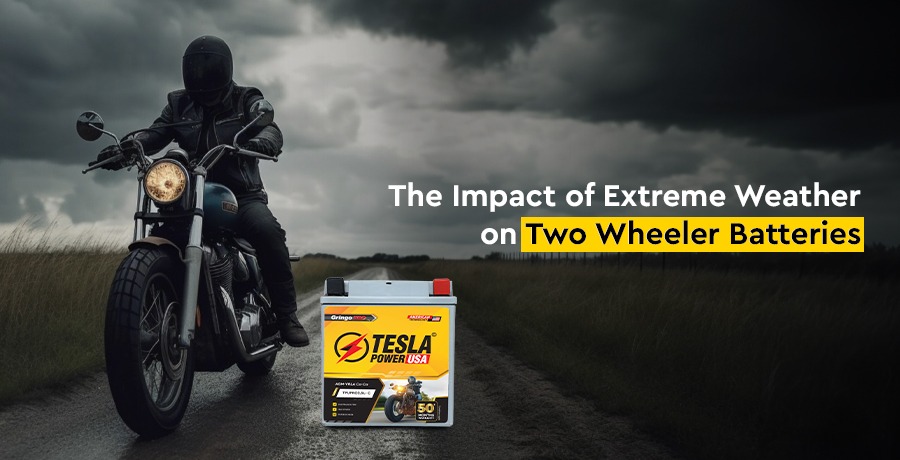Introduction
Two-wheeler batteries are essential components that ensure the smooth functioning of motorcycles and scooters. However, they are not immune to the effects of extreme weather conditions. In this article, we will explore the significant impact that extreme weather, both hot and cold, can have on two-wheeler batteries and offer tips on how to maintain and protect your battery year-round.
Extreme Heat and Two-Wheeler Batteries
- Reduced Lifespan: High temperatures, especially during summer months, can significantly reduce the lifespan of two-wheeler batteries. Heat accelerates the chemical reactions within the battery, leading to faster degradation of its components. This can result in a shorter overall battery life.
- Fluid Evaporation: Extreme heat can cause the battery's electrolyte fluid to evaporate more quickly. As the fluid level decreases, the battery's ability to hold a charge diminishes, leading to decreased performance.
- Corrosion: Heat can also contribute to the corrosion of battery terminals and connections. Corrosion can inhibit the flow of electrical current, making it harder for the battery to deliver power to start the engine.
Tips for Protecting Your Battery in Extreme Heat
- Parking: Whenever possible, park your two-wheeler in the shade or in a covered area to shield it from direct sunlight and excessive heat.
- Regular Inspection: Periodically check the battery's fluid level and top it up with distilled water if necessary. Ensure that the terminals and connections are free from corrosion.
- Battery Tender: Consider using a battery tender or maintainer during prolonged periods of inactivity to keep the battery charged and healthy.
Extreme Cold and Two-Wheeler Batteries
- Reduced Cranking Power: Cold temperatures can cause a drop in battery voltage and reduce its cranking power. This can make it challenging to start your two-wheeler, especially on freezing mornings.
- Increased Internal Resistance: The chemical reactions in the battery slow down in cold weather, leading to increased internal resistance. This means the battery has to work harder to deliver the same amount of power.
- Battery Freezing: Extremely cold temperatures can even cause the battery's electrolyte to freeze. When this happens, the battery becomes ineffective and may need replacement.
Tips for Protecting Your Battery in Extreme Cold
- Insulation: Use insulation material or a battery cover to protect the battery from direct exposure to cold air.
- Regular Charging: During the winter months, make it a habit to charge your battery regularly, especially if you don't use your two-wheeler frequently.
- Keep It Warm: If possible, store your two-wheeler in a heated garage or use a battery maintainer designed for cold weather conditions.
Conclusion
Extreme weather conditions, whether hot or cold, can have a significant impact on the performance and lifespan of two-wheeler batteries. To ensure the reliability of your motorcycle or scooter, it's crucial to take proactive steps to protect your battery.
Regular maintenance, proper storage, and using battery tenders or maintainers when needed can go a long way in mitigating the adverse effects of extreme weather. By following these precautions, you can extend the life of your two-wheeler battery and enjoy trouble-free rides throughout the year.






